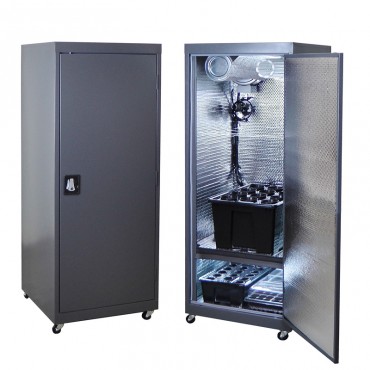 Loading... Please wait...
Loading... Please wait...Save Money. Grow Your Own!
Fast Plain Box Shipping.
We ship to the US & Canada.
Grow Your Own!
Comparing Different Hydroponic Systems
Posted on 10th Aug 2014
When it comes to buying new kinds of advanced hydroponics gardening systems, beginners or experienced growers have a lot of options to choose from. Many of these choices have to do with the various features in a hydroponics garden. Others have to do with the size of the garden and what types of plants a grower is trying to support. Here are some ways to compare different hydroponic systems for a new indoor or greenhouse gardening project.

Comparing Sizes of Hydroponic Systems
Hydroponics grow kits and grow chambers run the gamut from tiny two plant or four plant systems to huge indoor grow tents that can sit on a large floor plan and accommodate many dozens of plants. Comparing these kits has to do with knowing how many plants are in a desired crop size and how much space is available for hydroponics gardening.
Closed and Open Hydroponic Systems
Growers can also look at different kinds of systems that may offer a closed or sealed environment for plants. On the other hand, some hydroponics grow kits allow for utilization of natural sunlight and the interior air of a larger residential or commercial space. Look for systems that accommodate the grower’s particular needs.
Digital Versus Manual Controls
In addition to looking at wattage and power for grow lights, different types of air handling equipment, and specific hydroponics processes like deep water culture, ebb and flow and other setups, growers can look at whether systems have manual or new digital controls for items like temperature, humidity and carbon dioxide levels. The newest systems have digital or automated features that allow for less labor-intensive hydroponics gardens.
All of these issues and considerations can be sorted out through looking at your hydroponics retailer’s full catalog of new equipment. Check out what’s available on our site and compare different kits to come up with one that’s customized to your particular growing needs.
